Photo
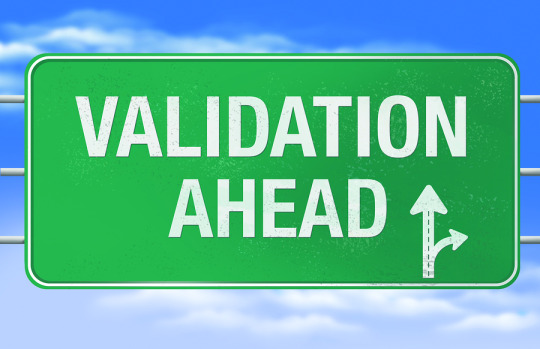
Until recently I was not truly considerate of how important validation is to students. Without validation a student cannot achieve or grow intellectually. Let me explain, if a student does not receive validation of their work, they will not be inclined to try to improve in it or maybe even learn it at all. When I was a tutor, I had, many times, students ask me "How is this composition writing going to be beneficial to me? When will I ever even use it?" The lack of validation makes students either put in the minimum amount of work or decide that the results are not worth the effort. In order to give students some level of validation, you might assign work that feels relevant tho them. For example, ask them to compare their own experiences to the theories or experiences being discussed in class. This, at least, gives the student the feeling that they are personally involved in their work and therefore validated by it. Another method might be allowing the student to choose the topic. Everybody always invests more effort in something that interests them. Allowing students to choose their own topic for writing can help them feel validated in thet they are contributing to something that they enjoy. Finally, you can simply provide positive feedback to students on where they are improving and what they do right. I practiced this kind of method back when I tutored for English composition. Knowing that they were actually improving made them feel validated for the work they did and really affected how they took criticism for their errors. In the end, validation is truly essential to student development. What do you guys think? Can you think of other ways that teachers can help students feel validated? I look forward to hearing your responses.
2 notes
·
View notes
Photo
I agree. A lot of interpretation applies to writing as well as art. You must draw a conclusion based upon your own personal views and experiences. The difference with writing, English composition especially, is that the purposes of the work and the meaning behind them are much easier to identify than with art. Still, though you must draw your own conclusion to whether the author’s argument or statement is correct or even credible. Likewise, people draw different interpretations on different forms of art and literature. Students should be encouraged to explore these interpretations. The ideas that students come up with on their own are frequently unique and can help contribute to new thought, especially in the field of English composition.
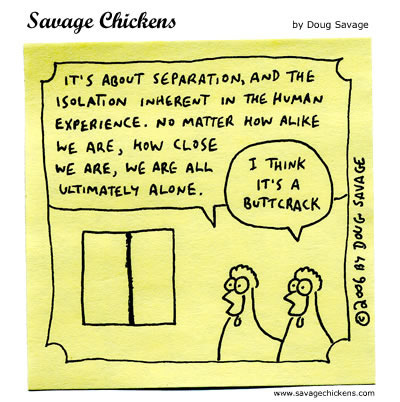

Art interpretation has alway fascinated me, so when we covered the concept in class I was in agreement with John Berger to the point because art interpretation can be a very complex phenomenon. Many factors can play during one’s interpretation of art including: ones mood, the person we are with, the drink we are holding, a gum we might be chewing, the weather, more females than males in the room and vice versa. When interpreting art, the amount of interpretations are limitless, and it is the same scenario with with composition, and writing creatively; the interpretation that we might get from our reader’s might vary drastically from individual to individual and might also be similar. It is this idea that interpretation can lead to self identification which is needed to be shared with our future students so that way they can incorporate this idea into their creative writing and academic perspectives. What do you guys think?
2 notes
·
View notes
Photo
Good point. It’s good as well to consider what that image would mean if the background information and surrounding scenery were removed. Currently, in this image, the painting can be taken as a symbol of war, destruction, and the violent nature of man. What would you think if you instead saw this image if it were zoomed in so that you only could see the cat? The meaning itself would completely change and you might only see a cat. What if the wall was surrounded by grass? It might take on a different meaning of nature taking over the urban constructs of man. Basically, the meaning of art can change based on the individual’s viewpoints and can be interpreted a number of ways.

“ Palestinians walk past a mural of a playful-looking kitten, presumably painted by British street artist Banksy, on the remains of a house that witnesses said was destroyed by Israeli shelling during a 50-day war last summer, in Biet Hanoun town in the northern Gaza Strip February 26, 2015.”- Fares Akram, Business Insider.
I thought this image was really interesting and relatable to the video we watched. To me, this image speaks many things. It’s not so much that the cat has a meaning ,it is the context around it contrasting to the actual graffiti that moves me. I think of hope amongst the ruins. This is why i like graffiti, it is so mobile and it speaks many things, it isn’t held in a pedastal like tradicional paintings, so the authority of it becomes very hard to determine. I mean, how can someone determine the ownership of street art? Why should it matter? What I mean is, when something is painted on the street it very much becomes part of that street, it turns public, it becomes a message for the public, and it belongs to them, the viewers. It is like when something is posted online, like on Wikipedia. So, is this composition? I think so. It is rhetoric, it has a strong message and a purpose and it can be interpretd or explained, expanded, manipulated, shaped, given new meanings.
10 notes
·
View notes
Photo

About a year ago, I was tutoring one of my classes and I discovered something from one of my students. I never truly thought that I might have a student with a disability that would not enable her to learn to write in a normal way. This student was deaf and couldn't hear a word we said. She was luckily provided a translator allowing us to speak, but she made me reconsider how I viewed composition. Not being able to hear didn't prevent her from writing (actually she was one of the best writers in that class!), but I though, "What if she were blind?" I considered this and decided that we would have to make adjustments just like I did already with her interpreter. Disabled students deserve every option to learn and receive education like any other student. Disabled students, even with help from an interpreter or other aid, have to work much harder than normal students to achieve the same level of quality with their writing. It is the job of educators to consider the needs of disabled students and aid them in whatever ways we can. If the interpreter were not provided by the university, it would have been prudent for me to learn basic sign language in order to communicate on a basic level. Likewise, when we watched videos related to our class work, I made sure to turn on subtitles so that she could understand what's being said. Just little extra steps taken by the educator, like this can make a world of difference for a student who has to struggle just to communicate on a basic level with another person. What do you guys think? I am very curious to hear your responses.
3 notes
·
View notes
Photo
Oops! I thought this was Bianca’s blog. Sorry midnightsmokblr!

Although, I had the opportunity to observe students as they read and wrote at the library in The University of Texas Rio Grande Valley, and noticed that student’s kinetic behaviors ranged vastly as they wrote and read their selected materials, I believe that it is not a very good representative of what people actually do when they write within different parameters. I noticed that females and males displayed similar characteristics when writing, both genders would check their phones from about every six to eight minutes, both genders used technology such as computers and tablets to read and write, both genders would stay reading or writing for long periods of times before they stood up to leave the premises, as well as, both genders either sat with their backs straight as they looked at the monitor screen while others laid back as if relaxing. Some key differences between males and females as they wrote and read included:
Females: Males:
Ate as they wrote Kept looking around.
Stayed in same pose. Moved bodies aggressively.
Stayed focus while engaged. Easily Distracted.
Talked to other girl friends. Idled a lot of time.
Males and females did have differences but they were similar differences that vastly impacted their writing in a negative way due to the loss of time and production. The Pomodoro Method that was introduce by Professor Hawkins discusses some key methods for effective writing and good habit building skills which some of these students lacked which also made me reflect about my own writing.
I have always wrote and taken breaks about an hour into the activity to refresh myself and begin writing again, but after my first break I keep taking more breaks its not something very thorough like the Pomodoro Method. I always tend to lay down as I write facing down at my keyboard with a pillow holding my head up, I also like to sit in the kitchen and place my books and laptop on the table to begin working on extensive projects. When I do go to the library, I tend to listen to music as I write and read in order to block random noises that will trigger a response and lose my concentration; I like to sit comfortably leaning on the desk as I sit to obtain good visibility of the text I am reading, but most of all I like being alone in a quiet place when I really need to get things done. In my opinion, it all depends on what type of writing one is engaged on what kinetic behaviors we will be producing.
6 notes
·
View notes
Photo
Nice blog Bianca! I'm more of a mix between the people who sit up and those who lean back like you described. If the assignment is short, I lean back (like I'm doing right now). If the work is more intensive, I will sit straight up, eyes glued to the screen, and type intently. Sometimes I wish I had a laptop so that I could relax as I write. I typically don't get distracted like a lot of the guys you observed. I typically can keep my mind focused for hours if the conditions are right with no distracting noises or settings. Maybe that's why I find writing so easy.

Although, I had the opportunity to observe students as they read and wrote at the library in The University of Texas Rio Grande Valley, and noticed that student’s kinetic behaviors ranged vastly as they wrote and read their selected materials, I believe that it is not a very good representative of what people actually do when they write within different parameters. I noticed that females and males displayed similar characteristics when writing, both genders would check their phones from about every six to eight minutes, both genders used technology such as computers and tablets to read and write, both genders would stay reading or writing for long periods of times before they stood up to leave the premises, as well as, both genders either sat with their backs straight as they looked at the monitor screen while others laid back as if relaxing. Some key differences between males and females as they wrote and read included:
Females: Males:
Ate as they wrote Kept looking around.
Stayed in same pose. Moved bodies aggressively.
Stayed focus while engaged. Easily Distracted.
Talked to other girl friends. Idled a lot of time.
Males and females did have differences but they were similar differences that vastly impacted their writing in a negative way due to the loss of time and production. The Pomodoro Method that was introduce by Professor Hawkins discusses some key methods for effective writing and good habit building skills which some of these students lacked which also made me reflect about my own writing.
I have always wrote and taken breaks about an hour into the activity to refresh myself and begin writing again, but after my first break I keep taking more breaks its not something very thorough like the Pomodoro Method. I always tend to lay down as I write facing down at my keyboard with a pillow holding my head up, I also like to sit in the kitchen and place my books and laptop on the table to begin working on extensive projects. When I do go to the library, I tend to listen to music as I write and read in order to block random noises that will trigger a response and lose my concentration; I like to sit comfortably leaning on the desk as I sit to obtain good visibility of the text I am reading, but most of all I like being alone in a quiet place when I really need to get things done. In my opinion, it all depends on what type of writing one is engaged on what kinetic behaviors we will be producing.
6 notes
·
View notes
Text
Nice post. I'm quite different when it comes to my study habits. I cannot stand noise while I try to type or write. Having noise around tends to make me loose my train of thought and I have to sit a while contemplating what I was just talking about. Even gentle music typically throws me off because it's distracting for me. When it comes to food, I never eat and type, mostly because all of my electronics are very expensive, but also because my mind gets focused on eating rather than writing. Although I must admit that a cup of Earl Grey in the evening as I write really helps keep me awake and relaxed for writing. So in many ways, I’m more like the girl that you observed.
How I Write
I usually do homework at Moonbeans because I actually find it difficult to concentrate in a library. Libraries to me are uncomfortably quiet. I don’t quite understand why I’d prefer the sounds of a coffee shop as opposed to a quiet library, so I won’t even try to explain. Last time I was there, I was working on a paper for one of my philosophy classes. I have learned in the past that I cannot snack while writing because I tend to just stop writing until I finish whatever it is that I am eating. I almost always get coffee while working on a paper because when I find myself stumped, I stare at my computer screen and think, until I get sleepy, and the coffee wakes me up. I sometimes rest my head on the table and wrap my arms over my face because of the anxiety I get from staring at the screen, and I’ll just start to think of what else I can add to my paper. Sometimes I’ll stop writing and text or surf the internet for a few minutes, and then get back to writing; I find myself doing this maybe every twenty to thirty minutes. I repeat this process a few times until I finish my paper.
I compared my writing process to the writing process of a girl that sat a couple of tables away from me. This girl seemed to use her time more efficiently. Each time she paused, it was only for a brief moment. She ordered a cup of coffee and a pastry that lasted her the entire time she was there, and when she took a sip or a bite, she’d keep her eyes on the screen. Unlike her, I probably would have devoured the pastry and gotten another one right after. She had her headphones on while she worked, but I couldn’t see where they were plugged into. She might have been listening to music, but I know people that like to where headphones without plugging them into anything so they aren’t distracted by the noise around them, or to keep people from talking to them. I’ve done this before and it does help sometimes. I couldn’t see her screen so I didn’t know if she was on Facebook or something (I just put my head down for a bit to think). I wasn’t able to see her screen, but it didn’t look like she was surfing the internet, and I saw her check her phone only once or twice.
I think the times where I am most focused when writing are when I am writing short stories. Instead of coffee, I drink whiskey (I should probably reconsider doing that) and I never feel the need to turn away from the screen or put my head down. I think that my writing method is different here because I’d much rather write short stories instead of an essay for class, unless it’s a topic that interests me which in this case, it didn’t.
4 notes
·
View notes
Photo

I recently had the opportunity to observe the composing process of other writers lately when I attended the university library. I'll admit I was looking for signs of their composing progress actively and it kinda made me feel like a stalker, but that's beside the point. I found that in the composing processes of others, that I observed, The majority of people never left their chairs and would not often take breaks except to check their phone about once every five or so minutes. Those that would write, not type, often leaned over their work. The typers were the majority of the writers and were leaned back and slumped in their chairs. A huge amount of them were eating while they worked. Almost nobody stood and worked. I was able to compare this to my own composing practices. I realized through monitoring myself, that I usually lean-in when I work regardless of writing on paper or typing. I often sit, not stand and I sit-cross legged. I also rarely take breaks. I feel very driven to complete work in order to gain some peace of mind. I tried changing around my writing process by standing and writing as well as taking frequent breaks. When I stand and type I feel more energized than when I sit. The act of standing, it seems, keeps my mind and body awake and focused on what I'm typing. If it weren't for my back hurting after about twenty minutes, I could make this technique work. When I stand and write on paper I am much more productive and energized without the pain I get from being hunched over a computer. I also walk around the room in circles; I guess I'm cycling just like my thoughts. When I tried taking frequent breaks, I found it to be more hindering than beneficial personally. If I don't write for a decant period of time consecutively, I loose my train of thought and often loose the momentum of writing. Each person works uniquely and often contrasting ways. What methods do you guys use? What methods have you tried that didn't work out? I'm very interested to hear.
0 notes
Text
Nice post! I agree that this method of teaching should be used more frequently. It gets you to really consider your won development as you have stated. However, the major reason I think this should be used is to point out where a student needs improvement and show the student how much they've improved. One of the hardest things I had to do with my students, back when I tutored, is to get them to look at their own work and see the progress they've made. They always stated that "Oh, I'm not that good, you are the reason I'm passing." Dang it! It is not me! It was all them, I just picked them up when they fell. There is a point where a person is so worried about tooting their own horn that they damage their own mental image of themselves. An assignment like this forces them to look at the good that they've done and see that they are good at writing as well as showing where they can improve.
Learning Record
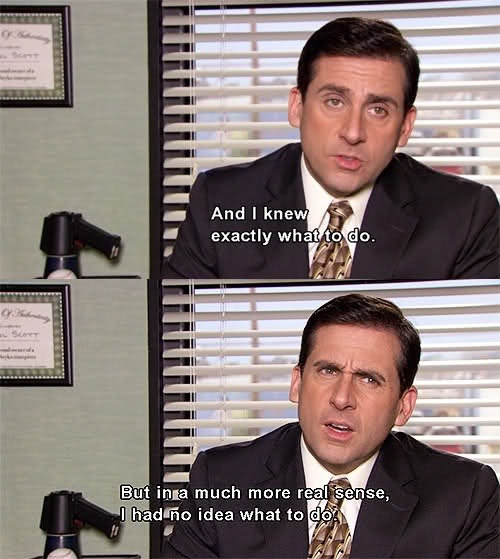
I never expected to be doing a learning record; this allowed me to reflect on my work and grade myself how I see fit. Having to fight for a grade seemed crazy to me at first. I was so use to “regular” grading where you’d do an assignment and be graded on that one alone not on everything you have done up to a certain point. Having to fight for a grade is a great way to help students see their progress or lack of it. I noticed that there were some areas where I could improve and without having to do the learning record it probably would have never crossed my mind to change some of my habits. I feel that more teachers should try and use this method with their students; not only will this make the students feel more involved but it helps them know that grading isn’t always just black and white/ fail or pass, there is a gray area.
4 notes
·
View notes
Text
Nice post. The issue with the modern school system, I believe, can be traced to modern values. The issue is a two-sided coin. Both administration and student are not wholly guilt, but not wholly innocent either. Many modern children don’t respect strong authoritative figures because the modern United States really doesn’t have any. Violence in schools, teen suicide, teen pregnancy, juvenile delinquency in general has risen over the last fifty years dramatically. There is a large amount of assumptions by administrations and a total lack of trust issued by the higher ups. However, children of today are, honestly, spoiled. There is much selfishness and a lack of gratitude in America today. There is also a kind of “stick it to the man” vibe that resonates in today’s youth; many of them no longer feel that even the police are there to serve and protect them. This combined with overly cautious and assumptive administration cannot lead to anything good.
Blog Post
For the past few days the news has been buzzing about an incident at Spring Valley High School in South Carolina involving a cop and his aggressive behavior towards a student. As we all must be aware by now there are multiple issues being addressed by this incident, one is the level of aggressiveness that are given to students both by the law and the administration. Second, the fact that student was African American, this making it a very debatable and heated situation. From what we’ve been learning in our class and readings, there is a strong emphasis on providing a safe and welcoming environment towards the students. We have also learned that there should be a big level of acceptance for the students as well but despite knowing this there is still discrimination towards students of color. Knowing all of this, why is there so much violence in our schools? We are living in an age in where a shooting or beating in a classroom is normal, causing tensions that are high between students and the administrations but why? Since this incident took place and the video has gone viral of the student being dragged by an officer there has been countless stories that have come up from multiple schools across the country. Clearly there is a problem, some arguments such as why is there even cops at schools make valid points but in the end of the day we do require some level of security. Still, why is it that students argue or risk being treated by their educators like criminals? For me I believe the problem goes back to the ones in charge. From my own personal experience in high school, administrations tend to judge and assume their student bodies due to race and other variables such as income. Respect in the classroom is rare between teacher and students and therefore a major contributor to the ever growing violence in our schools. Here’s a link to the video http://www.cnn.com/2015/10/27/us/south-carolina-school-arrest-video/ I spent a good amount of time following link after link after watching this video. Got to see different point of views from all sides of the situation. Feel free to do the same .
6 notes
·
View notes
Photo

I have never really been forced to consider my own learning before and I found having to do so for our midterm to be refreshing. To have to argue for a grade makes me consider how I have been participating and what I feel I deserve. I was even able to discover that I am far more modest than what is good for me. Everybody tells me to “go for the ‘A’” but I never felt like I deserved it even though I often went the extra mile. I noticed this among my students in classes that I tutored. I always would complement them on their work and they would always shrug me off saying “Yeah, it’s okay.” I could never get students to accept that they deserved the grade that they worked for, even when they would go the extra mile or when they would attend every session of tutoring. There is an issue I believe in telling students that what they do is wrong and they need to do it the right way, at least to an extent. There are ways to let students down without crushing their spirits. Saying “Nice (blank), but try doing (blank)” is far better than saying “This is wrong, fix it.” I’ve noticed many modern teachers picking up this trend. There must have been something wrong with my student’s past experiences with their teachers. They would always tell me how horrible they were at writing or how much they always did wrong. From preschool they were conditioned to believe that they were always writing wrong. Yes, I do believe that there should be a balance. Teachers should be strict with students when they are learning something new, but at the same time they should allow students to use what they have learned to express themselves. This constant strictness conditions students to believe that they are bad writers and leads many of them to hate writing, sometimes passionately. What do you guys think?
3 notes
·
View notes
Photo
Good point! I have tutored and taught students before, but always based my teachings off of someone else's prompts. I never realized how challenging for me that it could be to write an essay prompt with plans on relating it to another prompt. I just considered what I had tried to get into my student's heads and what I seemed to stress the most to them. I though to myself, “Well lets just combine them!” I did exactly that. In regards on being to harsh on students, I can agree with you. I always held my students to high standards , but I was never mean. It took me weeks to learn that I could be challenging without being brutal in the classroom.
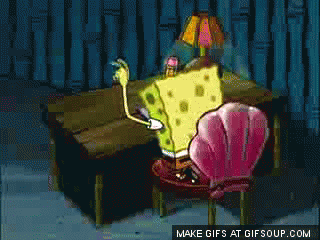
Working on the second prompt was really interesting and fun. I really liked imagining that I was a teacher and getting into that role gave me energy and motivation that was hidden inside me or something. Though it was a challenge also because I had to constantly think about how my audience would receive the prompt. So making a prompt that was approachable was fun, but not so easy. As I worked on it, I thought about Reid because I also had to imagine myself doing the prompt, in other words, place myself in a student of my hypothetical class’s shoes. This was helpful because at various points i had to go back and see where I was being too unrealistic or demanding.
1 note
·
View note
Photo
I know what you mean! This was a bit of a soul-searching quest for me. I found that didn't really know what I believed about teachers. I mean I knew what I want to do as a teacher, but I didn't really understand what the purpose and reasoning behind my beliefs were. I had to just sit down and have my father interrogate me (no joke) on my beliefs about teaching and what I wanted to be as a teacher. Only through his “conversation” did I realize what I wanted to do as an educator and what my purpose would be.

It amazes me how much time and effort it takes to put into a teaching philosophy statement. I constantly find myself having to leave my work and comeback because I begin to rant and wrestle with the thought of “Well maybe this would be more important?” To be completely honest, I have never seen a solid teaching philosophy statement until I read through Dr. Hawkins statement as well statements online, which were all very similar. So as I am fighting with my thoughts and trying to match the styles since I’ve never done a real teaching philosophy statement.
I also can’t ever seem to stay on one point for more than minuets at a time and it is frustrating!! Like o my gosh to write maybe for 10 minuets only to find that maybe half of the paragraph is ranting on feelings alone, really puts a damper on writing. I may be just about done but I still don’t feel confident enough in my statement. It’s the joys of writing it seems.
1 note
·
View note
Photo

During our recent Teaching Philosophy statements I found myself questioning what I viewed as the true purpose of a teacher. I found that the idea of a master and apprentice style of teaching as how I would want to be as a teacher. I don’t mean the kind of “Paint the fence Daniel-san. Wax on, wax off” kind of master and apprentice relationship specifically, but the basic principles of a master and apprentice relationship. Let me explain, the master is usually appreciated as a person of great knowledge to be shared with his apprentice. A master will share all that he knows about his specific profession and It is through the sharing that the apprentice is trained in everything the master knows. The master brings the apprentice to his level of expertise. Though it may take a while, the apprentice is eventually able to surpass the master by adding their own personal twists and ideas to their field of expertise. Likewise, I believe a teacher shares their entire knowledge with a student in order to bring them up to a level where they can give those twists and ideas. Of course, there’s not enough time for a student to master everything that they must know in school, but they learn what they want to master and learn from someone who is a master in that field. If I want to master blacksmithing, for example, I will go to a master in blacksmithing and he’ll share his knowledge to a point where I can produce quality work to match his. That way I could contribute with new and imaginative ways to improve on how blacksmithing is done. The same can be true of any educational field. The only difference is that students in college have multiple masters with something specific to teach instead of one master teaching everything they know. What do you guys think? Do you think this is the role of a teacher? Is it more, or maybe less?
2 notes
·
View notes
Photo
Hey! That's true about most modern students fearing failure. I am personally guilty of this. One of the things that mortifies me as a student is the prospect of failing a course. It doesn't help knowing that, if I do fail, I loose my scholarship. That in essence is what I think our issue is. Our incentives for succeeding are so high in our modern education system that we have been convinced of a great lie. Failure is a part of succeeding; you must fall before you learn how to climb. When we are climbing the educational ladder, we are told that if we fall it will be the end. The truth is that, if we fall, we'll get back on the ladder again. I know this is true, but I still fear, not my failure, but the flame being lit below me by our educational system.
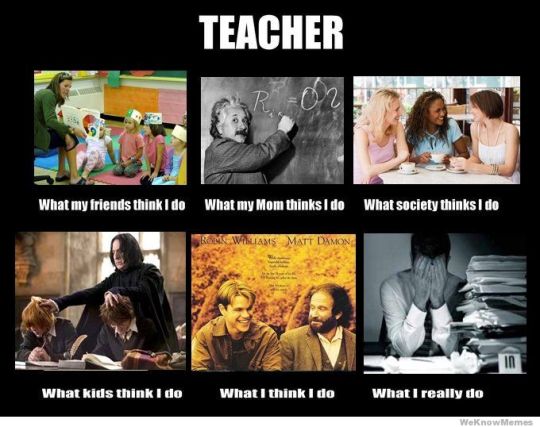
Teaching Writing Teachers Writing
I was intrigued to read Reid’s “Teaching Writing Teachers Writing,” I particularly enjoyed reading about the way students perceive teachers who give vast amounts of work, and the way teachers perceive those student’s shortcomings, and the idea of failure being intolerable for most students. In my opinion, failure has always been a big part of my life and has helped shape the student that I now am, but most people are not willing to embrace failure as a learning experience. Failure must be acknowledged as being part of our learning process without failure there is no perfection. Reid goes on to say that, “It is… important for us to help pedagogy students not just to name difficulty but to see how even “dead ends” or “failures” in their writing can increase their ability to teach writing well” (pg. 208). With that being said, as future teachers we must find ways to be able to guide students when failing, and help them reflect on possible ways to use the failure as a learning experience. We also need to make sure that there is well defined and balanced line on what is considered learning from failure because students could develop the idea that failing is ok leading them to consistently fail which is not what we as educators should want; we must help students write well and encourage them to do better, and to learn from failure, but to also refrain from consistently failing.
5 notes
·
View notes
Text
Hey! I completely agree when it comes to growth and failure being related. You cannot learn something without failing once or twice. That is one of the reasons that I am for letting students fail. If you protect students from failing when they make a mistake, they never learn anything from it. It's like having a child who is learning how to walk and not letting them try because you fear that they will fall. You may not want the child to fall and possibly injure themselves, but, if they don't try or you stop them before they fall, they will not have learned anything. A child cannot learn to walk without falling a few times. The same is true for students. They cannot learn to write if they do not fail at it.
Teaching Writing Teachers Writing
I found it interesting and somewhat comforting when Reid acknowledged that growth and failure are sometimes the same thing. She talks about how new teachers will start will follow a curriculum that doesn’t allow a student to grow. She emphasizes the importance of empathy and acknowledges that students might need work on some basic things. Teaching pedagogy is difficult so a teacher must be innovative and get use to trying different methods to see what works and what doesn’t, and not being afraid to fail in the process. I think it is important for a teacher to be innovative. Teachers follow a curriculum that might be flawed, but don’t do anything to fix it and allow their students to fail without learning anything in the process. Failure is inevitable, and I believe that Reid is right, failure is necessary when a student can learn and grow from it?
Reid mentions how teachers need to be “conscious learners.” Emphasizing on the importance of empathy, she says that teachers need to develop their methods in teaching from their experiences as learners. I think that teachers need to be adaptive because not all students are the same, they understand things differently. Writing is hard, and writing draft after draft and constantly revising a paper is frustrating. I can see how there is a lack of empathy in classes and I feel that a big reason for it is the curriculum that a teacher is bound by. Like Reid said, there is less room for failure which is a hindrance in a student’s growth. And when a student does fail, they don’t learn from it because they are taught that failure is a bad thing.
2 notes
·
View notes
Photo
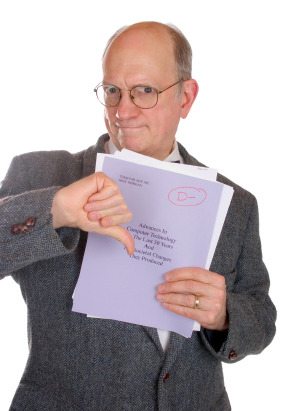
Shelly Reid, I admit, is a bit hard to read (not as bad as Readings was), but despite that, I really like her idea of intentionally giving students difficult work. I am a firm believer that failure is important to eventual success. I have had former students tell me and cry and whine about how the professor I tutor for is so unfair and mean to them. “She just doesn't understand having to start all over!” they'd yell even though she told the story of how she had to redo, from scratch, a twenty page paper, multiple times I might add! I used to think that myself. I'm not sure when I changed my mind or when I realized this (probably when I started tutoring!), but I've never retained information for long except for when it was challenging. I also have never had a truly memorable teacher unless they were nasty human beings or difficult but enjoyable to be around. My old teacher Mr. Dunkin was a hard son of a gun who let people fail and was intentionally hard. However, when I did fail or did screw up pretty bad, he was always there to show me what I did wrong. I would say he was empathetic, but he was more like “alright get off your but and get back in the game!” To be honest often what I needed was a boot in the arse, the same was true for many of my students. I always used to tell them, “if you can't handle a two-page paper how in the heck can you handle an eight-page paper in your later college years!” The only glaring issue I see with Reid's ideas is that, in order to work, both the teacher and student need to be willing to work together. Some of my students gave up after their first bad grade and there was no helping them after that, no matter how much empathy I showed them or how many kicks in the butt I gave them. You must have students and teachers that are both willing to put in the work needed for the student to do well. Overall, her theory is solid though. What do you guys think? Hard but empathetic? What did some of your old memorable teachers do (the ones that weren't terrible that is)?
0 notes